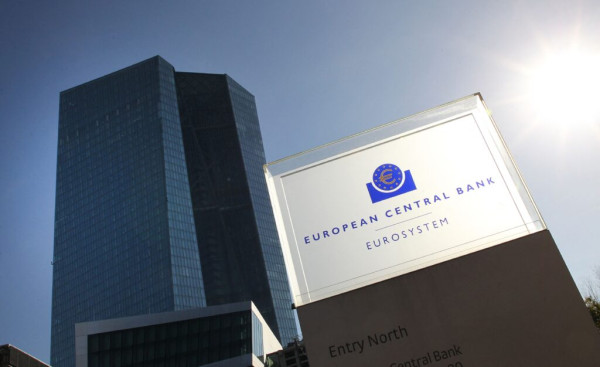ECB to leave rates on hold in hope for quiet summer
The European Central Bank (ECB) is expected to keep interest rates on hold on Thursday, but an improving inflation outlook, both at home and abroad, means the door for further cuts later in the year remains wide open.
Headline inflation eased to 2.5 percent in June from 2.6 percent in May and the eurozone economy is looking slightly weaker than expected, with the region's industry still stuck in reverse as key export markets in China and the U.S. show signs of cooling.
A closely watched survey released Tuesday showed expectations for the German economy, the eurozone's largest, weakened for the first time in a year, while another survey conducted by the ECB showed no sign of a meaningful pickup in investment from businesses.
Financial markets, while expecting no action this week, are still betting on another quarter-point cut in September that would take the key Deposit Facility Rate to 3.5 percent. They also price in an 80 percent chance of another move of the same magnitude in December.
Even so, President Christine Lagarde may have to avoid the temptation to give too-clear guidance, after the Bank's first rate cut in June was complicated by evidence that inflation in the key services sector is still stubbornly refusing to slow down.
The ECB's summary of the June meeting later revealed that some policymakers had felt uneasy about the cut as they thought “the data available since the last meeting had not increased their confidence that inflation would converge to the 2% target by 2025” and that the cut was “not fully in line with the principle of data-dependence.”
In what looked like a thinly veiled warning to Lagarde to not make any more promises, the Bundesbank on Tuesday stressed the importance of staying "data-dependent" due to the persistence of upside risks to inflation.
Some factors since the last meeting have admittedly made it easier for the ECB to cut rates if it wants to: In the U.S., inflation and the labor market have both cooled, leading many to expect a first rate cut from the Federal Reserve as early as September. The euro has strengthened to a four-month high against the dollar as a result. The Chinese economy, too, slowed more sharply in the second quarter than expected, taking the heat out of global energy prices.

But other factors closer to home have been less helpful. The recent election in France has created serious uncertainty over how quickly Paris, Rome and a handful of other EU capitals can reduce their budget deficits, creating further upside risks to inflation. The ECB has indicated it thinks governments should roll back the emergency support measures of recent years and may feel it has less room to ease monetary policy if they don't.
The French question
At her regular press conference after the meeting, Lagarde is likely to face a barrage of questions on France's uncertain political future. The recent election failed to produce a clear winner and resulted in a parliament dominated by parties with expansive spending plans that threaten to break EU budget rules and put France's public debt on an unsustainable path. In a worst-case scenario, that could risk creating another sovereign debt crisis in the eurozone.
France, whose public debt stands at 110 percent of GDP, is already facing a so-called excessive deficit procedure from the EU, along with Italy and five others. Even though the worst-case scenario — that of a strong and radical government openly defying the EU — has failed to materialize, fears that the new government won’t deliver fiscal consolidation remain real. Bank of France Governor François Villeroy de Galhau has urged any incoming government to avoid increasing the deficit.
For now, markets are still calm: The premium that markets demand of 10-year French debt over its German counterpart has fallen from a high of 0.85 percent to 0.65 percent as of Monday's close. That's despite remarks by German Finance Minister Christian Lindner threatening a legal challenge to the ECB if it acted to keep Paris' borrowing costs down. The ECB has created a tool allowing targeted bond purchases to counteract any increase in bond yields that it considers unjustified, but various comments from ECB officials over the last month have suggested they don't see themselves using that tool to help France any time soon.
Lagarde must avoid saying anything that could shake investors’ trust in the ECB’s readiness to act, analysts say. At the same time, she will not want to give any impression that the ECB is ready to give her home country a free lunch.
“President Lagarde will not say anything new on this, especially as bond yields are not showing acute stress and political processes are still ongoing,” J.P. Morgan economist Greg Fuzesi said.
As ING's Global Head of Macro Carsten Brzeski put it: "The main, if not only goal will be to have a gentle start to the holiday season and to avoid sending markets on a rocky summer road."